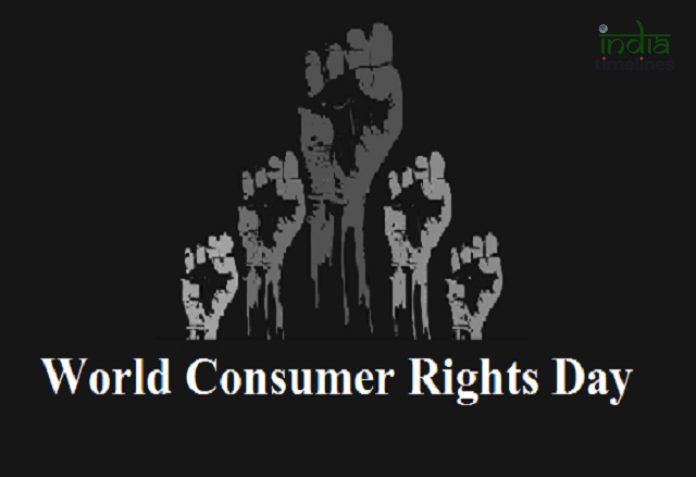
Consumer rights are fundamental in ensuring fair and ethical practices in the marketplace. Every year, on March 15th, World Consumer Rights Day is observed to raise awareness about these rights and advocate for their protection. This day serves as a reminder of the importance of empowering consumers and holding businesses accountable for their actions.
The theme of World Consumer Rights Day 2024 is “Empowering Consumers in the Digital Age.” This theme highlights the challenges and opportunities that arise from the increasing digitalization of the marketplace. With the rise of e-commerce, social media influencers, and digital advertising, consumers face new risks and complexities when making purchasing decisions. It’s essential to equip consumers with the knowledge and tools they need to navigate this digital landscape safely and confidently.
The significance of World Consumer Rights Day lies in its role as a platform for promoting consumer protection policies, laws, and initiatives at the local, national, and international levels. By raising awareness about consumer rights, governments, businesses, and advocacy groups can work together to address issues such as product safety, fair pricing, transparent advertising, and access to information.
The history of World Consumer Rights Day dates back to March 15, 1962, when President John F. Kennedy first addressed the issue of consumer rights in a special message to the U.S. Congress. Since then, consumer rights movements have gained momentum worldwide, leading to the establishment of consumer protection laws and regulations in many countries.
To observe World Consumer Rights Day 2024, individuals and organizations can take various actions to promote consumer empowerment and advocacy. Some ways to participate include:
Organizing awareness campaigns: Host events, workshops, or seminars to educate consumers about their rights and responsibilities.
Advocating for policy changes: Work with policymakers to strengthen consumer protection laws and regulations.
Supporting consumer rights organizations: Donate to or volunteer with organizations that advocate for consumer rights and provide assistance to consumers in need.
Promoting ethical business practices: Encourage businesses to adopt fair and transparent practices that prioritize consumer welfare.
Sharing information on social media: Use social media platforms to raise awareness about consumer rights issues and share tips for making informed purchasing decisions.
By coming together to celebrate World Consumer Rights Day, we can reaffirm our commitment to protecting and promoting the rights of consumers everywhere. Together, we can build a marketplace that is fair, transparent, and empowering for all.
Theme of World Consumer Rights Day 2024
World Consumer Rights Day 2024 focuses on empowering consumers in the digital age, recognizing the challenges and opportunities posed by rapid technological advancement and the prevalence of online platforms. The theme underscores the critical need for enhancing digital literacy among consumers, safeguarding data privacy, and promoting fair practices in the online realm. As technology continues to reshape the consumer landscape, ensuring that individuals are equipped with the knowledge and tools to navigate digital platforms responsibly and confidently becomes increasingly vital. By emphasizing digital literacy, advocating for robust data protection measures, and championing fair online practices, this year’s theme aims to empower consumers to make informed choices and effectively assert their rights in the digital sphere.
Significance of World Consumer Rights Day
World Consumer Rights Day is an annual observance that carries considerable significance in highlighting the fundamental rights of consumers. These rights encompass various aspects crucial for consumer protection and empowerment, including safety, access to accurate information, freedom of choice, and the ability to voice concerns through representation.
This day serves as a global platform to raise awareness about the importance of safeguarding consumer rights and ensuring fair practices in the marketplace. It underscores the responsibilities of governments, businesses, and organizations to enact and enforce regulations that uphold these rights, thereby fostering trust and confidence among consumers.
Furthermore, World Consumer Rights Day provides an opportunity for advocacy groups, consumer organizations, and individuals to mobilize and advocate for policies and practices that promote transparency, accountability, and fairness in commerce. By shining a spotlight on consumer rights issues, this day encourages dialogue, collaboration, and action towards building a more equitable and consumer-friendly marketplace.
In essence, World Consumer Rights Day serves as a rallying cry for consumer protection efforts globally, reaffirming the principle that every individual deserves to be treated fairly, honestly, and respectfully in their interactions as consumers.
History of World Consumer Rights Day
World Consumer Rights Day has a rich history that extends beyond President Kennedy’s speech. In 1983, the United Nations adopted guidelines for consumer protection, recognizing the need for international cooperation in safeguarding consumer rights. This pivotal moment further propelled the momentum for a dedicated day to raise awareness about consumer rights worldwide.
Over the years, World Consumer Rights Day has become a focal point for advocating for fair treatment, transparency, and accountability in business practices. It serves as a platform for consumers to voice their concerns, demand better standards, and hold companies accountable for unethical behavior.
The themes of World Consumer Rights Day vary each year, reflecting the evolving challenges faced by consumers globally. From product safety and fair trade to digital privacy and sustainable consumption, the day highlights a wide range of issues impacting consumers in the modern world.
Consumer organizations, government agencies, and businesses often mark the occasion with various activities such as seminars, workshops, and campaigns to educate consumers about their rights and empower them to make informed choices.
The significance of World Consumer Rights Day continues to grow as the global marketplace expands and technology transforms the way we shop and interact with businesses. It remains a crucial opportunity to reaffirm the importance of consumer rights in shaping fair and equitable societies worldwide.
Timeline of World Consumer Rights Day
- 1962: President Kennedy’s Speech on Consumer Rights: President John F. Kennedy delivered a historic speech to the US Congress on March 15, 1962, highlighting the importance of consumer rights. This speech marked a significant moment in advocating for consumer protection laws and regulations.
- 1983: The First World Consumer Rights Day Organized by Consumers International: March 15, 1983, marked the inaugural World Consumer Rights Day organized by Consumers International, a global federation of consumer organizations. This event aimed to raise awareness about consumer rights and promote consumer protection policies worldwide.
- 1999: United Nations Adopts Guidelines for Consumer Protection: In April 1999, the United Nations General Assembly adopted the UN Guidelines for Consumer Protection. These guidelines serve as a framework for countries to develop and strengthen their consumer protection policies, addressing issues such as product safety, fair business practices, and consumer education.
- 2015: Sustainable Development Goals Include Targets for Consumer Protection: The United Nations Sustainable Development Goals (SDGs), adopted in September 2015, include specific targets related to consumer protection (Goal 12). These targets emphasize the need to ensure sustainable consumption and production patterns, promote consumer information and education, and strengthen consumer protection laws and enforcement.
- 2020: COVID-19 Pandemic Highlights Importance of Consumer Rights in Healthcare and Online Shopping: The global COVID-19 pandemic, which emerged in late 2019, underscored the critical importance of consumer rights, particularly in healthcare and online shopping. Issues such as price gouging, product safety, and misinformation highlighted the need for robust consumer protection measures to safeguard consumers during times of crisis.
These milestones reflect the evolution of consumer rights advocacy and policy development on both national and international levels, emphasizing the ongoing efforts to protect and empower consumers in an ever-changing global marketplace.
How to Observe World Consumer Rights Day
There are several ways to observe World Consumer Rights Day:
- Educate yourself and others about consumer rights
- Participate in local events and workshops
- Support consumer advocacy organizations
- Advocate for fair and transparent business practices
- Raise awareness on social media using #ConsumerRightsDay
Importance of Consumer Rights
Consumer rights are essential for several reasons. Firstly, they empower individuals by providing them with the necessary protections against unfair practices from businesses. This empowerment leads to more informed decision-making and increased confidence in the marketplace. Additionally, consumer rights help to maintain a level playing field between consumers and businesses, preventing exploitation and abuse of power by corporations.
Moreover, consumer rights promote economic stability by fostering competition. When consumers have the ability to make informed choices and hold businesses accountable for their actions, it encourages businesses to improve the quality of their products and services to remain competitive. This competition drives innovation and efficiency, ultimately benefiting both consumers and the economy as a whole.
Furthermore, consumer rights contribute to social justice by ensuring that vulnerable populations are not taken advantage of. By protecting the rights of all consumers, regardless of their socioeconomic status or background, consumer rights help to reduce inequalities and promote fairness in society.
In summary, consumer rights are crucial for promoting trust, confidence, and fairness in the marketplace. They empower individuals, foster competition, and contribute to economic stability and social justice.
Consumer Rights Advocacy
Consumer rights advocacy is a crucial component of ensuring fair treatment and protection for consumers in various markets worldwide. These efforts are championed by a multitude of organizations and movements operating at different scales, ranging from local to global.
One prominent organization in this field is Consumers International, which serves as a global federation of consumer groups, working to empower and protect consumers through research, advocacy, and campaigning. With member organizations in over 100 countries, Consumers International plays a significant role in promoting consumer rights on a global scale.
At the national level in the United States, organizations like Public Citizen and the Consumer Federation of America are prominent advocates for consumer rights. Public Citizen, founded by consumer advocate Ralph Nader, focuses on a wide range of issues including consumer protection, healthcare, and environmental justice. The Consumer Federation of America, on the other hand, works to advance consumer interests through research, education, and advocacy on issues such as product safety, financial services, and telecommunications.
These organizations and movements play a vital role in monitoring market practices, influencing policy, and raising awareness about consumer rights violations. Through their efforts, they aim to ensure that consumers are treated fairly, have access to accurate information, and are protected from deceptive or harmful practices in the marketplace.
Challenges in Consumer Rights Protection
Despite progress in consumer rights advocacy, challenges persist, including:
- Lack of awareness among consumers
- Inadequate enforcement of consumer protection laws
- Emergence of new technologies and business models
- Globalization and cross-border consumer disputes
Achievements in Consumer Rights Advocacy
Over the years, consumer rights advocacy has achieved significant milestones, such as:
- Adoption of consumer protection laws and regulations
- Establishment of consumer ombudsman offices
- Creation of product safety standards and certifications
- Recognition of consumer rights in international treaties and agreements
Global Initiatives for Consumer Protection
International organizations like the United Nations and the World Trade Organization play a crucial role in promoting consumer protection through initiatives such as:
- The UN Guidelines for Consumer Protection
- The WTO Agreement on Technical Barriers to Trade
- The OECD Consumer Policy Toolkit
Future of Consumer Rights
Looking ahead, the future of consumer rights will be shaped by technological advancements, changing consumer behaviors, and evolving regulatory frameworks. It will require continued collaboration between governments, businesses, and civil society to address emerging challenges and protect consumer interests.
Spreading Awareness
Spreading awareness about consumer rights is essential to empower individuals to make informed choices and assert their rights. Educational campaigns, community outreach programs, and digital media can all contribute to raising awareness and promoting consumer empowerment.
Engaging Businesses and Governments
Engaging businesses and governments is critical to ensuring effective consumer protection measures. By working together, stakeholders can develop policies and practices that prioritize consumer welfare and promote a fair and competitive marketplace.
Conclusion
World Consumer Rights Day 2024 serves as a reminder of the importance of consumer rights in today’s digital world. By advocating for transparency, accountability, and fairness, we can create a marketplace where consumers are empowered to make informed choices and businesses thrive on trust and integrity.
FAQs
1. What is the purpose of World Consumer Rights Day?
World Consumer Rights Day aims to raise awareness about consumer rights and advocate for their protection.
2. Why is consumer rights advocacy important?
Consumer rights advocacy is important because it ensures fair and ethical practices in the marketplace, benefiting both consumers and businesses.
3. How can individuals support consumer rights?
Individuals can support consumer rights by educating themselves, participating in advocacy efforts, and making informed purchasing decisions.
4. What are some common challenges in consumer rights protection?
Common challenges in consumer rights protection include lack of awareness, inadequate enforcement, and emerging technologies.
5. What is the role of international organizations in consumer protection?
International organizations play a crucial role in promoting consumer protection through guidelines, agreements, and policy frameworks.



































